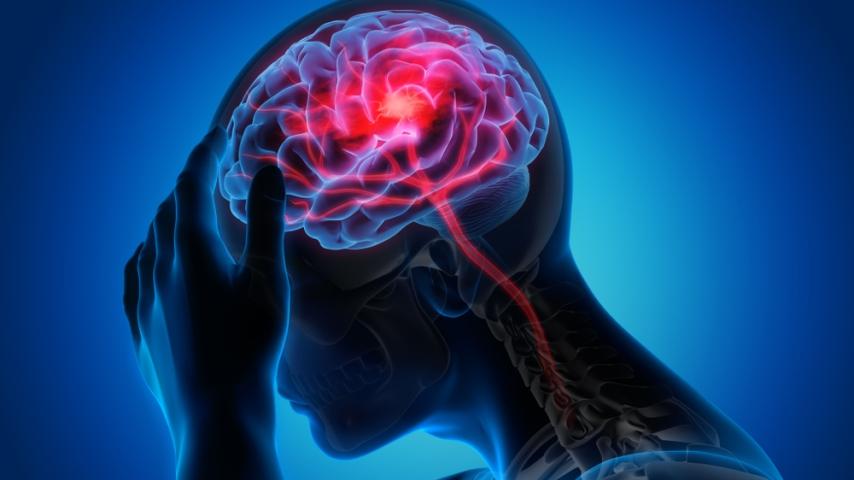Brain Tumors: Understanding Types, Symptoms, and Treatment Modalities

Brain tumors are abnormal growths of cells within the brain or the surrounding structures. While the term "tumor" often evokes fear, it's important to understand that not all brain tumors are cancerous, and treatment options vary depending on factors such as tumor type, location, and size. In this comprehensive guide, we'll explore the different types of brain tumors, their symptoms, diagnostic methods, and treatment modalities, shedding light on this complex and often daunting condition.
Understanding Brain Tumors: Types and Classification:
Brain tumors are classified based on their location, origin, and behavior. There are two primary categories of brain tumors: primary and metastatic. Primary brain tumors originate within the brain or its surrounding tissues, while metastatic brain tumors, also known as secondary brain tumors, originate from cancerous cells that have spread (metastasized) to the brain from other parts of the body.
Primary Brain Tumors: Primary brain tumors are further classified based on the type of cells involved and their behavior. Common types of primary brain tumors include:
- Gliomas: Arising from glial cells, which support and protect nerve cells. Gliomas include astrocytomas, oligodendrogliomas, and ependymomas.
- Meningiomas: Originating from the meninges, the protective membranes surrounding the brain and spinal cord.
- Pituitary tumors: Developing in the pituitary gland, a small gland located at the base of the brain that regulates hormone production.
- Medulloblastomas: Typically occurring in the cerebellum, the part of the brain responsible for coordinating movement and balance.
Metastatic Brain Tumors: Metastatic brain tumors are more common than primary brain tumors and are often the result of cancer spreading from other parts of the body, such as the lungs, breast, or skin (melanoma). While any cancer can metastasize to the brain, certain types, such as lung cancer, breast cancer, and melanoma, have a higher propensity to do so.
Recognizing the Symptoms:
The symptoms of a brain tumor can vary widely depending on factors such as tumor size, location, and rate of growth. Common symptoms may include:
- Headaches, often worsening in severity or frequency
- Seizures or convulsions
- Changes in vision, including double vision or loss of peripheral vision
- Difficulty speaking or understanding speech
- Weakness or numbness in the arms or legs
- Changes in personality or behavior
- Balance and coordination problems
- Nausea and vomiting, especially in the morning
It's important to note that these symptoms can be caused by various other conditions, and not all individuals with these symptoms have a brain tumor. However, if you experience persistent or worsening symptoms, it's essential to seek medical evaluation for an accurate diagnosis.
Diagnosis and Evaluation:
Diagnosing a brain tumor typically involves a combination of imaging studies, neurological examinations, and specialized tests. Common diagnostic methods may include:
- Magnetic resonance imaging (MRI) scan: Producing detailed images of the brain and surrounding structures, MRI is often used to visualize brain tumors and assess their characteristics.
- Computed tomography (CT) scan: Providing cross-sectional images of the brain, CT scans may be used to identify tumors and evaluate their size and location.
- Biopsy: A surgical procedure to remove a small sample of tissue for laboratory analysis, biopsy helps determine the type of brain tumor and guide treatment decisions.
- Neurological examination: Assessing cognitive function, motor skills, and sensory abilities, neurological exams help identify abnormalities associated with brain tumors.
Dr Karthik, Sr Consultant Surgical Oncologist emphasizes on, "Brain tumors present unique challenges due to their location and potential impact on neurological function. Treatment requires a multidisciplinary approach, integrating surgical expertise, advanced imaging techniques, and personalized treatment strategies. By leveraging innovation and collaboration, we strive to optimize outcomes and improve the quality of life for patients battling brain tumors."
Treatment Modalities:
Treatment for brain tumors depends on various factors, including tumor type, size, location, and overall health. Treatment modalities may include:
- Surgery: Surgical removal of the tumor, known as craniotomy, is often the primary treatment for accessible tumors. Surgeons aim to remove as much of the tumor as possible while preserving neurological function.
- Radiation therapy: Using high-energy beams to destroy cancer cells, radiation therapy may be employed as primary treatment or adjuvant therapy following surgery to target remaining tumor cells.
- Chemotherapy: Administering drugs to kill cancer cells or inhibit their growth, chemotherapy may be used alone or in combination with other treatments for certain types of brain tumors.
- Targeted therapy: Targeting specific molecular pathways involved in tumor growth, targeted therapy drugs may be effective in treating certain types of brain tumors, such as glioblastoma multiforme (GBM).
- Immunotherapy: Harnessing the body's immune system to identify and attack cancer cells, immunotherapy is an emerging treatment modality for certain types of brain tumors, with ongoing research and clinical trials exploring its potential efficacy.
Conclusion:
Brain tumors are complex and multifaceted conditions that require comprehensive evaluation and personalized treatment approaches. Through early detection, timely intervention, and ongoing research, we aim to improve outcomes and provide hope for individuals affected by brain tumors. By raising awareness, fostering collaboration, and advocating for innovation, we can continue to advance the field of neuro-oncology and make strides in the fight against brain tumors.










